Rian Johnson Movies Ranked from Worst to Best
We examine the filmography of Rian Johnson, the storyteller behind this century's most popular whodunits... and its most divisive Star Wars movie.
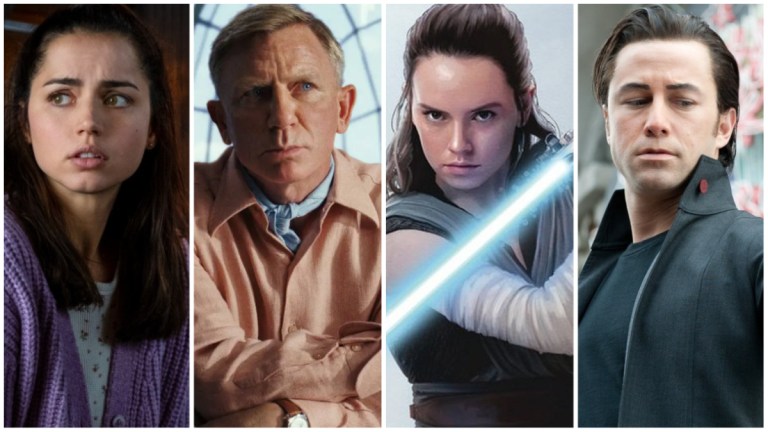
When Rian Johnson’s Brick arrived at Sundance in 2005, it was a bit like its namesake being thrown through a window. Here was a first-time feature, from a guy barely out of his 20s, talking about the high school experience. That wasn’t the unusual part for a Sundance indie though; the strange bit is that Johnson had made the high school experience look indistinguishable from a Dashiell Hammett novel. Brick was a full-throated, grizzled-to-the-bone noir about characters barely old enough to shave!
This has of course been the fascinating paradox of Johnson’s career as it’s unfolded over the last several decades: one of the most excitingly new, modern filmmakers cheekily and eagerly relies on the cinematic vernacular of nearly a century ago. These sometimes jarring sensibilities have found surprising harmony, too, across the writer-director’s six feature films to date. Along the way, he’s masterminded an unlikely franchise series aimed at adults via the Benoit Blanc mysteries, Knives Out (2019) and Glass Onion (2022), as well as stood on the razor’s edge of innovating the sacred cows of nerd culture.
A populist Hollywood filmmaker to some and a genre heretic to others, Johnson has developed an impressive resume via his first half-dozen films. And we here at Den of Geek have put our heads together to rank Johnson’s entire filmography. Enjoy.
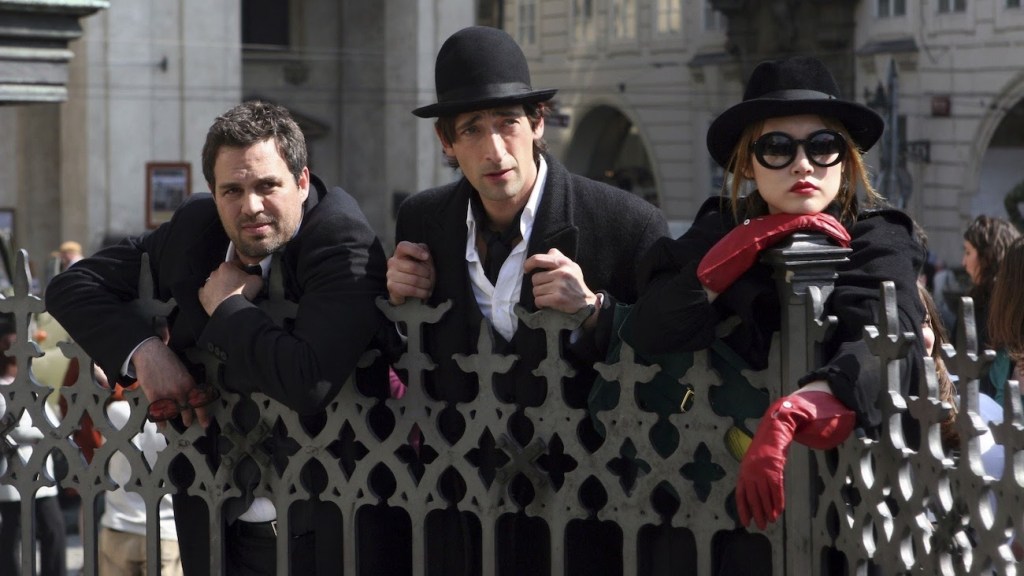
6. The Brothers Bloom (2008)
Rian Johnson’s second film doesn’t exactly qualify as a sophomore slump, but it is the one picture on this list where the seemingly incongruent tonal elements don’t actually snap into place. The film, about a pair of folksian con men who on paper wouldn’t be out of place in a Mark Twain novel, is intended to be a fluffy slice of whimsy, as well as an occasionally action-packed thriller. Frequent Johnson idol Alfred Hitchcock excelled at this contradiction in his 1950s Cary Grant collaborations. Unfortunately, there are times (mostly near the end) where The Brothers Bloom falls flat by contrast.
When it works, there is a pleasant frivolousness about Adrien Brody and Mark Ruffalo as the thieving brother who wine and dine Rachel Weisz, their daffy but wealthy mark, in the movie’s better moments. Together, they travel by steamship, train, and just about every other antiquated mode of transportation from the days of Preston Sturges. It doesn’t make a lot of sense in the film’s modern setting, but it plays better than when the movie awkwardly pivots toward heists and double dealing confidence games. Perhaps Brody and Ruffalo should’ve traded parts? There’s still a fizzy fun hidden inside, but the Brothers Bloom too often rely on bromides. – David Crow
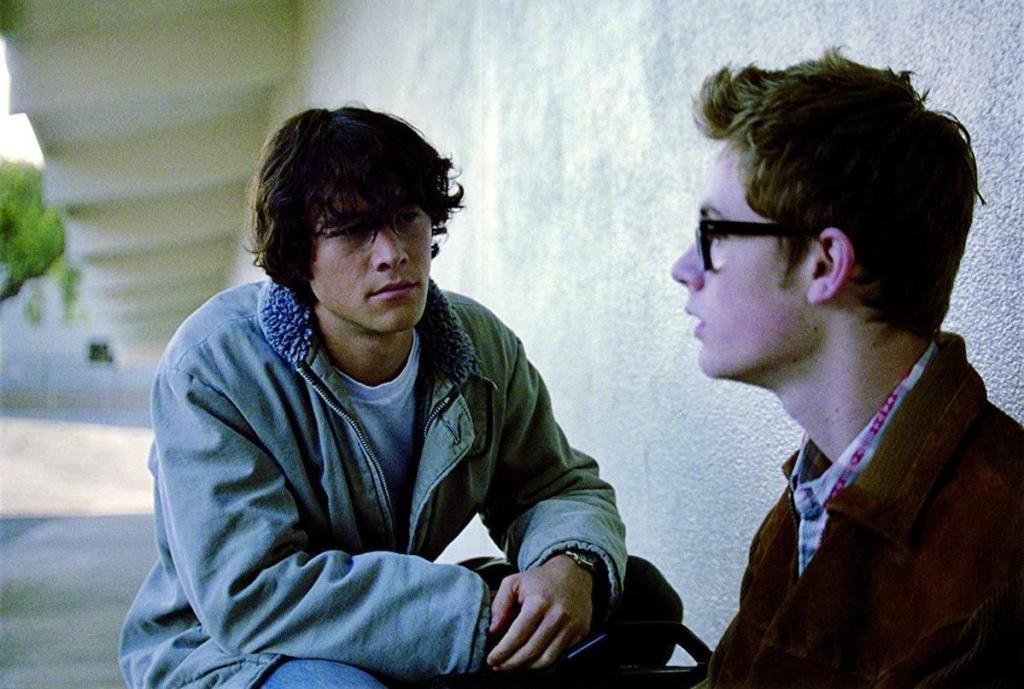
5. Brick (2005)
To call Brick the “detective noir set in a high school” is accurate. But it also does it a disservice. Yes, Brick is as quirky as that high concept phrase implies it would be, committing to its bit with abandon even as it hisses anachronistic dialogue through the gritted teeth of its young cast. The broadest strokes of Brick, involving drug dealing and other youthful indiscretions, could be the basis of a far more “straight” telling, but even this early in his career, Johnson displays his knack for casting and an ear for dialogue, even if/especially when it’s dialogue that is about 60 years removed from its setting.
Brick could have been a novelty act. But instead of just leaning on the admittedly funny beats that watching modern high-schooler spout hard-boiled lingo bring about, the film invites you into a secret world all its own with intricate rules and details that imply these “adult” performances are really what’s happening whenever parents aren’t looking. And it’s all wrapped up with an ending that’s every bit as bitter and ambiguous as the genre could hope for. And we have to ask: Is the film’s “hero” Brendan Frye, Joseph Gordon-Levitt’s greatest performance? Could be… – Mike Cecchini
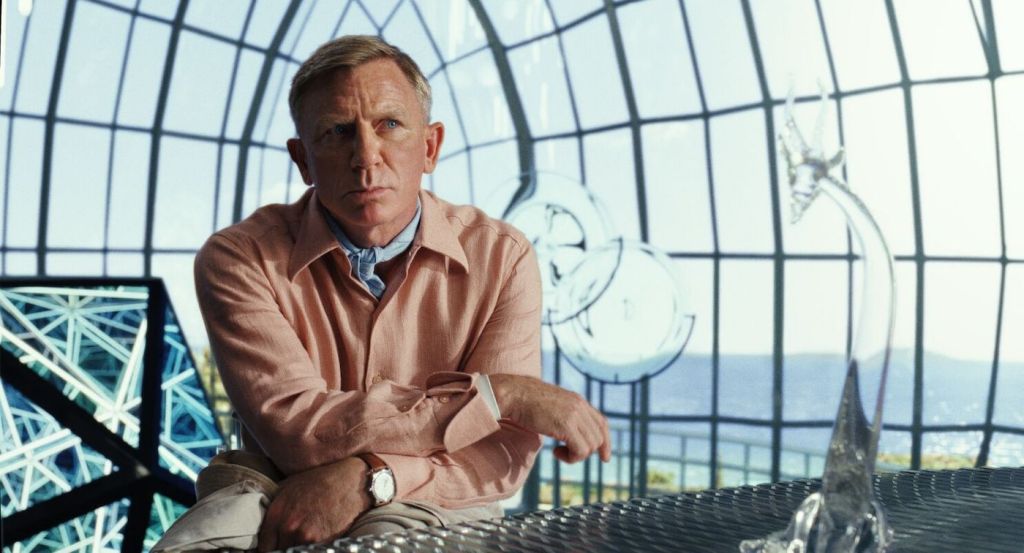
4. Glass Onion (2022)
Few would accuse Glass Onion, the second entry in Rian Johnson’s series of Benoit Blanc whodunnits, of holding back. This 2022 Netflix film loudly and proudly tears down the celebrity influencer industrial complex with all the subtlety of an atom bomb when Southern dandy detective Benoit Blanc heads to a remote tech billionaire’s island to solve another “moooiiurder.” The truth is, however, we live in unsubtle times, and every now and then a filmmaker needs to step up and declare, “Doesn’t anyone else notice this? I feel like I’m taking crazy pills!” Mugatu-style.
In addition to its satisfyingly bloodthirsty social commentary, Glass Onion is once again a finely crafted murder mystery. Like Knives Out before it, the real crime at the center of Glass Onion isn’t revealed until the movie’s second act. By that point, viewers have already bought into the world thanks to capable performances from an all-star cast, including Kate Hudson, Leslie Odom Jr., Dave Bautista, Kathryn Hahn, and the wonderful Janelle Monáe. That’s not even to mention Edward Norton’s timely turn as dimwitted tech bro Miles Bron. And of course, none of it would work without Daniel Craig embodying the increasingly iconic gumshoe Benoit Blanc. – Aleec Bojalad
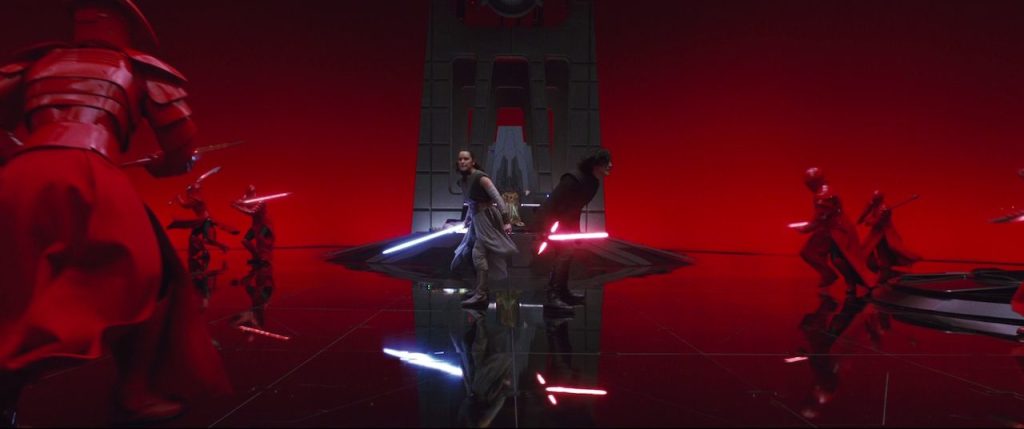
3. Star Wars: The Last Jedi (2017)
This is the movie that broke Star Wars fandom—or at least revealed its Dark Side while offering a luminous new path into the light. After J.J. Abrams’ admirable but cautious relaunch of Star Wars via The Force Awakens (2015), a cozy and overly familiar retread of the franchise’s greatest hits, Johnson came to bat and startled fans with a movie that sidestepped formula in favor of a larger, more nuanced palette from which the Skywalker Saga could draw.
The controversial The Last Jedi is also the only Star Wars movie under Disney’s stewardship, save perhaps Rogue One, to feel genuinely fresh and exciting. In this case, it’s because Johnson elaborated on George Lucas’ original idea of finding an older, more reflective Luke Skywalker (Mark Hamill) at the end of his life, and questioning the binary “good vs. evil” dichotomy the series has always operated on. While Luke doesn’t exactly embrace moral ambiguity, his journey beside Rey (Daisy Ridley) gives a mythic grandeur to the lifetime struggle of self-improvement, and raises tantalizing questions about the Jedi which I fear will never be answered. Even so, there are few better movie moments in 2010s blockbuster cinema than when Rey and Kylo Ren (Adam Driver) briefly join forces, shoulder to shoulder, or when Luke reveals he knows more about being a Jedi than Kylo and half the fandom by standing alone against the entire might of the First Order and winning… without having to land a single blow. – DC

2. Looper (2012)
Midway through Rian Johnson’s 2012 sci-fi thriller, Looper, Kansas City mob assassin Joe (Joseph Gordon-Levitt) has a one-on-one with the future version of himself (Bruce Willis) at a diner. As Young Joe begins to try to unpack the implications of the two sharing a timeline, Old Joe immediately dismisses his concerns by saying, “I don’t want to talk about time travel because if we start talking about it then we’re going to be here all day talking about it, making diagrams with straws.” Looper opts to follow Old Joe’s lead. Aside from Joe’s opening expository monologue about time travel (it hasn’t been invented yet but it will be and future crime syndicates will send undesirables back to the past to be killed by “loopers” like Joe), this is a film that would much rather shoot than talk. And the cinema landscape is all the better for it!
Looper is a hell of a fun ride that uses its central sci-fi gimmick as a launching off point for action, not just philosophical navel-gazing. Yes, it’s wild that in the future some people have mild telekinetic abilities. Yes, it’s wild that Joe chose a profession where he would one day have to “close his loop” and kill the future version of himself. And yes, it’s wild that Joseph Gordon-Levitt and Bruce Willis look virtually nothing alike. But Looper doesn’t just present all of that madness for madness’s sake; it revels in it all and wraps it around a capably constructed cat and mouse plot. Only this time around the cat and mouse are actually two versions of the same cat who are armed with future shotguns called “blunderbusses” and have differing opinions on the fate of a psychic child. You know, the usual!
Looper represents Rian Johnson at both his most creative and capable. – AB
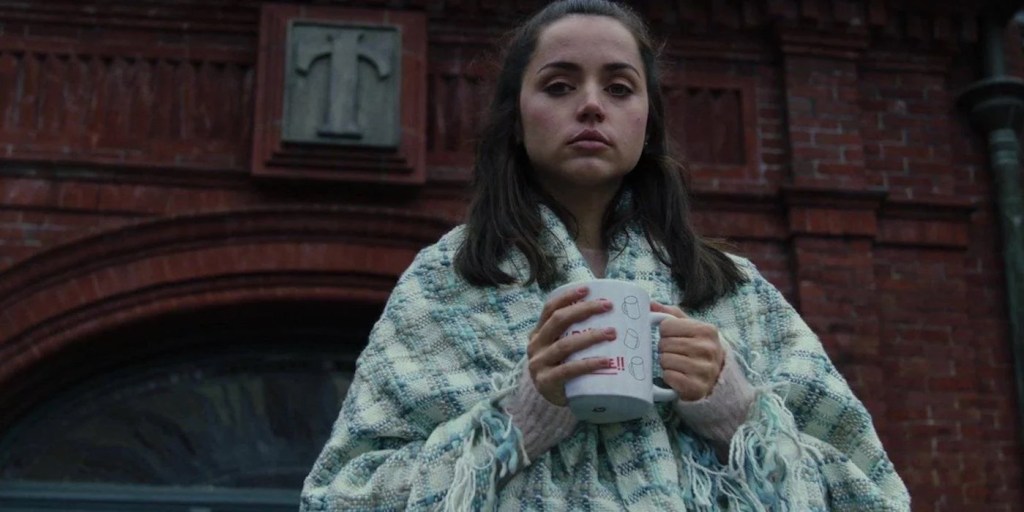
1. Knives Out (2019)
The rules of a “locked room” murder mystery go back nearly a hundred years. Which is another way of saying that, for a while, it seemed like there was little life left in the classic whodunit. Perhaps that’s why Knives Out hit moviegoers like a thunderbolt in 2019, becoming the sleeper hit of that year’s holiday season and launching an unlikely adult-oriented franchise. Suddenly, audiences had a crowdpleaser that relied on more than merely the visual sensations.
This is achieved in part because of Johnson’s supremely clever storytelling structure in this outing, which leans into the classic aesthetics of an Agatha Christie-inspired whodunit (or at least other successors like the Clue board game and Joseph Mankiewicz’s Sleuth) while also completely subverting them. In the first act, we are introduced to a classic murder mystery setup, complete with a cast of shady characters and greedy family members… which the second act then proceeds to throw all that out, eschewing the black and white morality of a whodunit novel in favor of something more thrilling and mildly perverse. The movie seeks to make you root for an accidental killer. It’s ultimately more Hitchcock than Christie.
All of the narrative trickiness is buoyed by one of the best casts in the last decade. They’re all so charming you won’t even mind that Daniel Craig’s central detective sounds about as Southern as blood pudding. However, the real star turn here belongs to Ana de Armas. Her Marta is like a hidden blade in the title. You may not see it or the social commentary coming, but by the end you’ll discover an unforgettable edge to this potboiler. – DC
